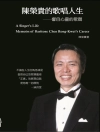Record executive, producer, band manager, club DJ, booking advisor, record store manager—few people had as deep an impact on the Twin Cities alternative and indie rock scene as Peter Jesperson.
A passionate music fan since his early childhood, Jesperson found his way into Minneapolis’s burgeoning music world of the 1970s and followed a path that put him at the center of the scene as it grew and blossomed over the ensuing decades. Beginning with his time working at the legendary Oar Folkjokeopus record store, Jesperson helped shape the tastes of local music fans and foster the Twin Cities as a destination for touring acts from around the globe. He continued to serve as tastemaker as a DJ and booking assistant at Jay’s Longhorn bar, the landmark venue that significantly amplified the Twin Cities’ reputation as a mecca for left-of-center artists. In 1977, Jesperson, along with two partners, founded Twin/Tone Records, which over the next 20 years released more than 300 records, including by such groundbreaking local artists as the Replacements, the Suburbs, Soul Asylum, Babes in Toyland, the Jayhawks, and many more. With Twin/Tone, Jesperson further solidified Minnesota’s place on the map as a hotbed of musical creativity and a leader in the indie music world. Just three years after starting Twin/Tone, Jesperson made the discovery that changed his life, and the Minneapolis music world, forever: the Replacements. As A&R man and then full manager, he guided the development of this talented and out-of-control foursome, while taking a break to road-manage an upcoming sensation out of Athens, Georgia: R.E.M. But as his career was on the rise in the wild ’80s, Jesperson began his own descent into substance abuse, until he overcame his demons and launched a second act in the industry.
In
Euphoric Recall, Jesperson speaks frankly about his struggle with drugs and alcohol, and how it nearly derailed his career and his life. Motivated by his love of music, Jesperson rallied to pick up where he left off with Twin/Tone and the Replacements before heading west to begin the next phase of his career in Los Angeles. While working alongside such noteworthy artists as Dwight Yoakam, Kris Kristofferson, Vic Chesnutt, and Steve Earle, Jesperson experienced firsthand the dramatic changes in the music industry of the 1990s. Through it all, he has retained his passion for the industry and the art, and now, after a half-century in the music business, Jesperson shares his insights, anecdotes, and lessons from his unique vantage point.
O autorze
David Fricke is a senior writer and former editor of Rolling Stone magazine. His career as a music journalist has spanned nearly 50 years, during which time he has written for such varied music publications as Circus, Trouser Press, Synapse, Good Times, Melody Maker, Mojo, and Jazz Times. He is a three-time winner of the ASCAP-Deems Taylor Award for excellence in music journalism.












